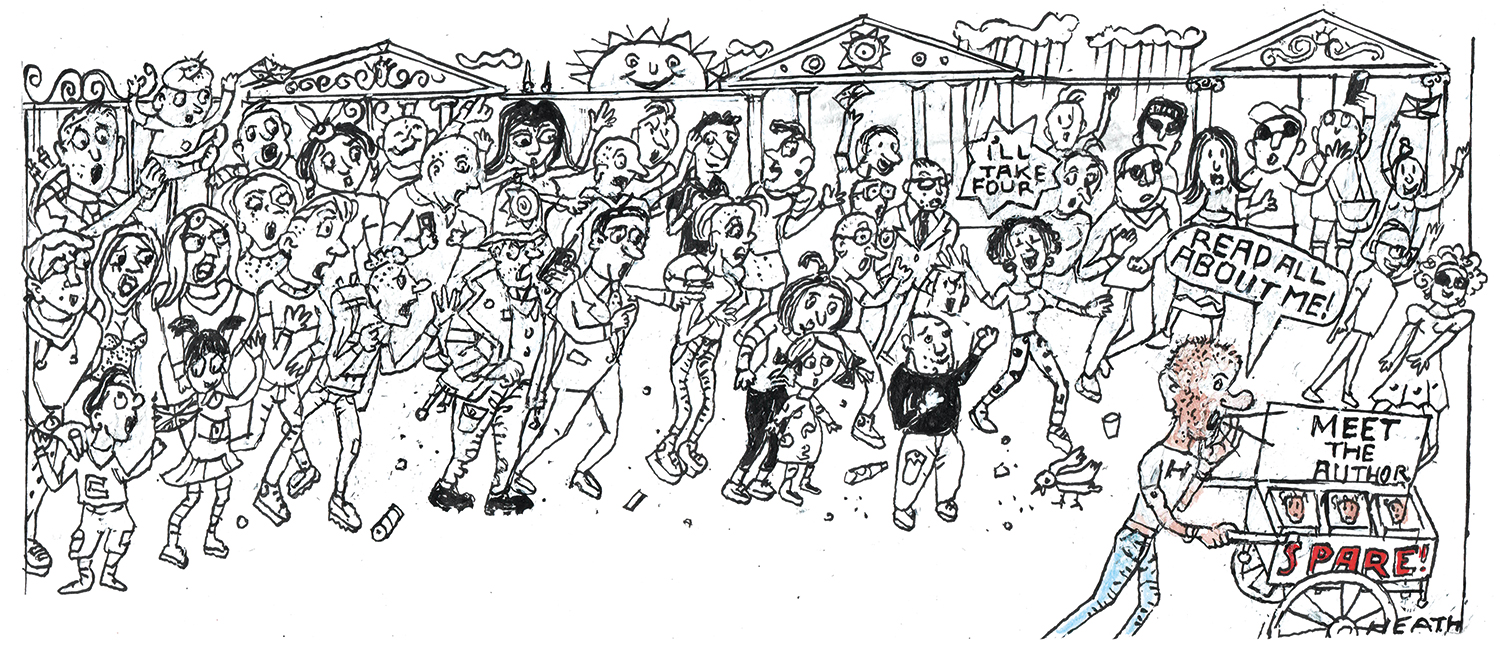Home
Scotland sent the Stone of Scone to Westminster for the coronation of King Charles and Queen Camilla at Westminster Abbey. The ceremony included the recognition of the King, his oath to maintain the ‘Protestant Reformed Religion established by law’, his anointing (with oil free from civet oil or ambergris from whales), investiture with orb and sceptres and his crowning, enthronement and reception of homage. The Queen was also to be anointed and crowned. The ceremony was set within a Church of England service of Holy Communion. The Prime Minister, Rishi Sunak, accepted an invitation to read the Epistle. Jews, Sunni and Shia Muslims, Sikhs, Buddhists, Hindus, Jains, Bahais and Zoroastrians were invited. The Duke of Sussex popped over for the event, but the Duchess did not. Jill Biden, the wife of the American President, was invited (no US President ever having attended a coronation), as was Han Zheng, deputy to Xi Jinping, the ruler of China; Ant and Dec also accepted invitations.
Nurses went on strike for a day. The government agreed to give the million NHS staff in England a 5 per cent pay increase, despite the Royal College of Nursing union rejecting the offer. Teachers went on strike. The RMT union said it would hold strikes on railways on 13 May, and was accused by Mark Harper, the Transport Secretary, of ‘cynically targeting the Eurovision song contest’ in Liverpool that day, all the worse because the contest was being hosted on behalf of Ukraine, whose rail workers were being targeted by President Vladimir Putin. Sue Gray, the former senior civil servant selected to be the chief of staff of Sir Keir Starmer, the Labour leader, had chosen not to be interviewed as part of a government inquiry into her appointment, Oliver Dowden, the Secretary of State in the Cabinet Office, told the Commons in a written statement; the advisory committee on business appointments would have to make a ruling. Richard Sharp resigned as chairman of the BBC after a report found that before his appointment he had ‘failed to disclose potential perceived conflicts of interest’. Voters went to the polls in 230 council areas in England and had to have photo ID.
Food prices were 15.7 per cent higher than in April 2022, according to the British Retail Consortium. BP announced profits of £4 billion for the first three months of the year. The microchip designing company Arm, founded in Cambridge in 1990 and bought by a Japanese conglomerate in 2016, registered to sell its shares on the US Nasdaq stock exchange and would not be listed in London. A new outdoor leisure venue called Frate, with food outlets and bars housed in shipping containers, is to open behind Grey Street in Newcastle.
Abroad
In a wave of Russian air strikes on Ukrainian cities, including Kyiv, 23 were killed by a missile that hit a block of flats in the city of Uman. Two days later Russian attacks destroyed dozens of flats and houses. A drone caused a large fire at an oil depot in Sevastopol, in Russian-controlled Crimea. A train carrying oil products was derailed by an explosive device in the Russian region of Bryansk on the Ukrainian border. Ukraine appointed an ambassador to China. More than 20,000 Russian soldiers had been killed in Ukraine since December, the US estimated, half of them in the Wagner mercenary force. European natural gas prices fell to their lowest level in 21 months. The Pope visited Hungary and urged the opening of doors to migrants.
Britain succeeded in airlifting more than 2,100 people from Sudan, more than 1,000 being people from other nations. Fighting continued in Khartoum between the Sudanese army and the Rapid Support Forces; tens of thousands of Sudanese tried to flee to Egypt, Saudi Arabia, Chad and even the Central African Republic. Abu Hussein al-Qurashi, the reputed leader of the Islamic State, was killed in Syria by Turkish forces, according to President Recep Tayyip Erdogan of Turkey.
JP Morgan Chase took over the American bank First Republic, paying $10.6 billion for it to the Federal Insurance Deposit Corp, after regulators shut down the bank. Shares in some regional US banks fell sharply. On May Day, French police fired teargas at demonstrators who threw petrol bombs at them. Council officials in Japan removed a street piano from Kakogawa railway station because players displayed bad manners, some hogging it for up to an hour and others singing loudly as they played. CSH







Comments